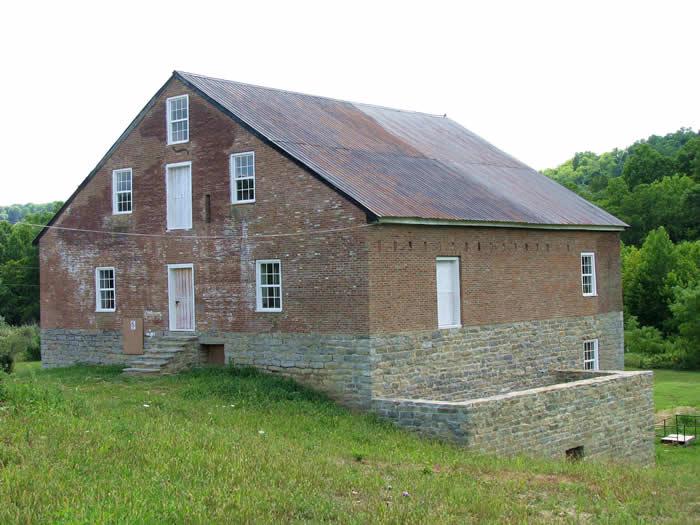
Shuster Grist Mill / Thompson's Mill / Tunnel Mill / Lower Mill
Brown Co. | Ohio | USA
Watersource: White Oak Creek.
Shuster Grist Mill / Thompson's Mill / Tunnel Mill / Lower Mill
One mile south of Georgetown at 8013 Sr 221, on White Oak Creek.

The sturdy, 3.5 stone and red brick mill with gable roof covered with metal was built in 1843 by Edward Thompson for $2500.00. The two lower levels are stone with the 1.5 upper level (highway ground-floor and attic) are of brick construction.
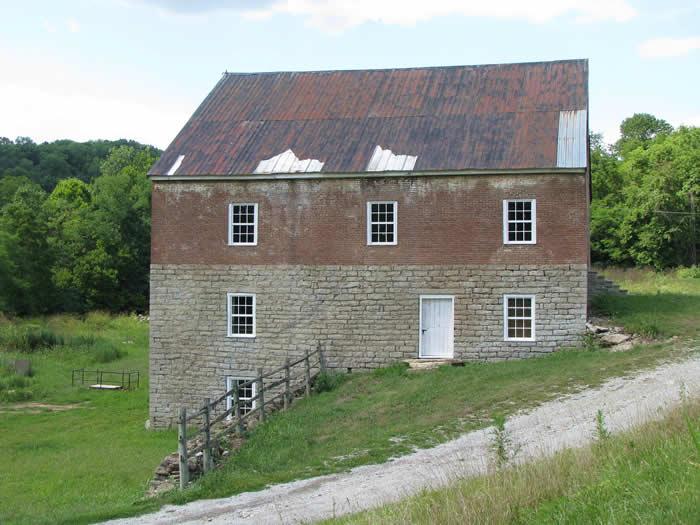
Mr. Thompson employed Chinese labor to construct the 3.5 story building and to build tunnels. One tunnel supplied water from White Oak Creek through a hillside, and another carried water from the waterwheel to the tailrace.
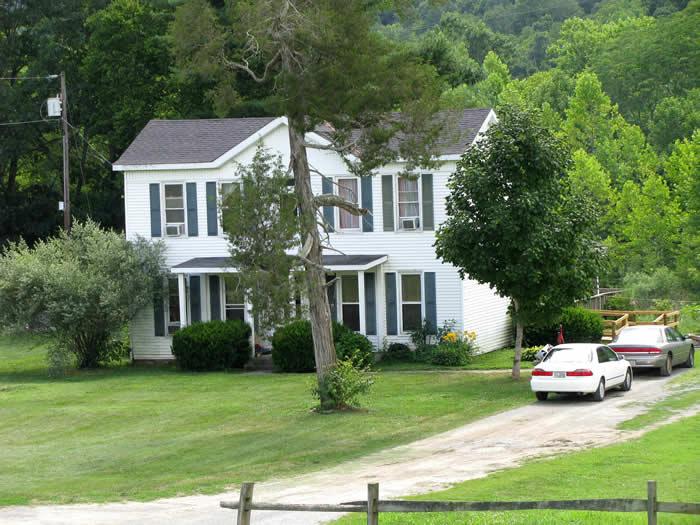
The miller's house, located about 20 feet lower than the mill and closer to White oak Creek. It would seem that the two locations should have been switched.
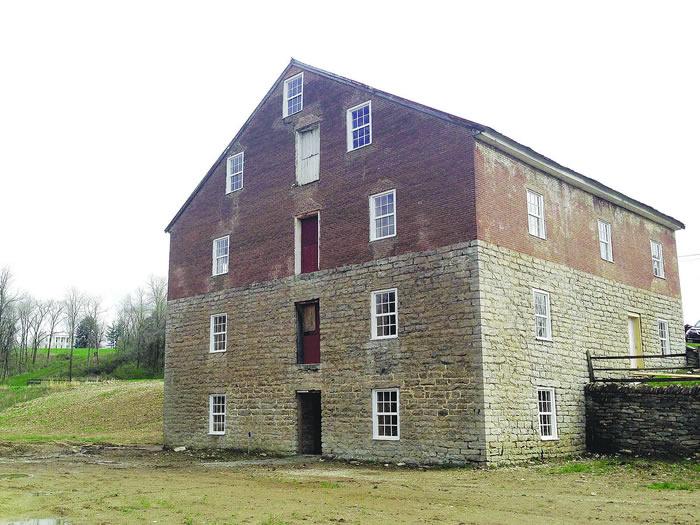
Check out this site also as well as the website at the top of this page. https//tamborski.com/?p=2468 This photo permission granted by Carly Tamborski, reporter at the News Democrat. The News Democrat serves the Georgetown/Ripley area.
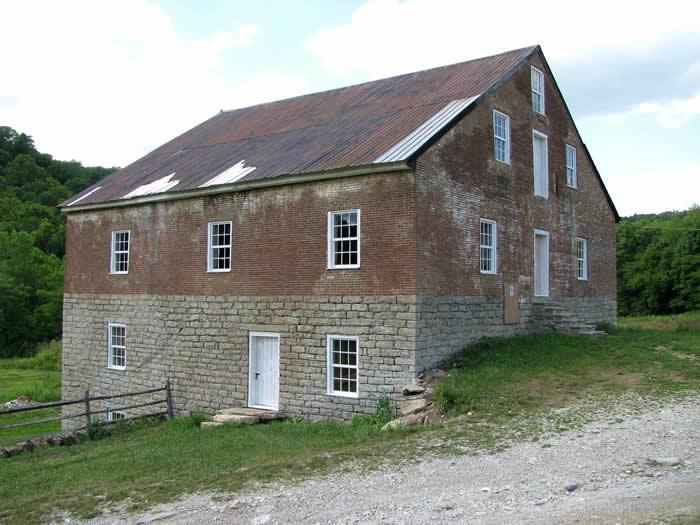
The mill had the capacity to grind fifty barrels of flour a day and the building had storage capacity for twelve thousand bushels of grain. Thompson built two mills, one in the north end of Pleasant Township and one in the southern end, and bought a third mill in the middle. The group of mills, called “The Thompson Millsâ€, were known for being the most successful in the county at that time.
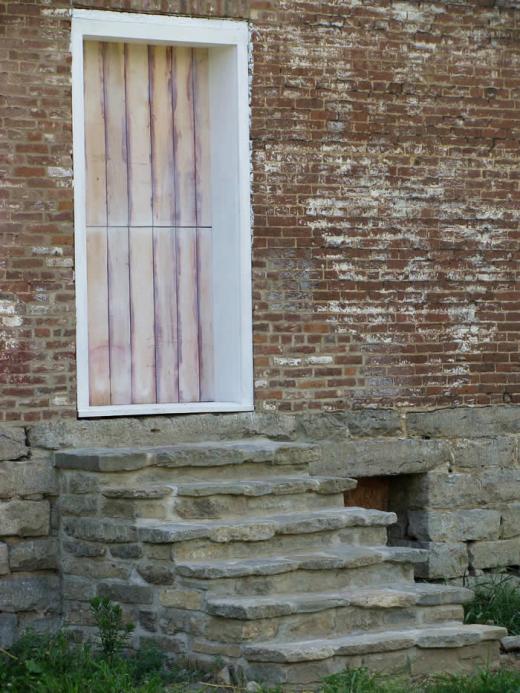
Thompson's sons each received a mill. James received the upper mill, John received the mill in the middle, and William received the lower mill. The lower one known as the "Tunnel Mill", was actually the northernmost mill and perhaps the highest in elevation.
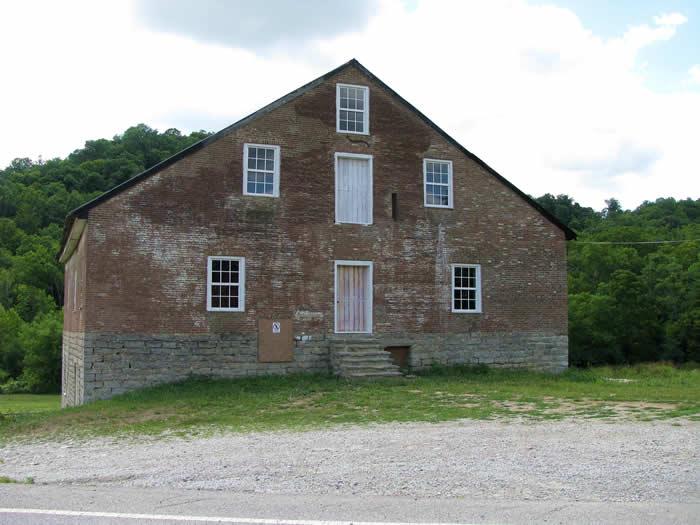
William's mill was acquired by Frederick Shuster in 1883, who installed a steam engine to use when the quantity of water was not sufficient to drive the stones. GPS: 38D 51.77'N, 83D 55.46'W ele 640'/190 meters Higginsport Quadrangle
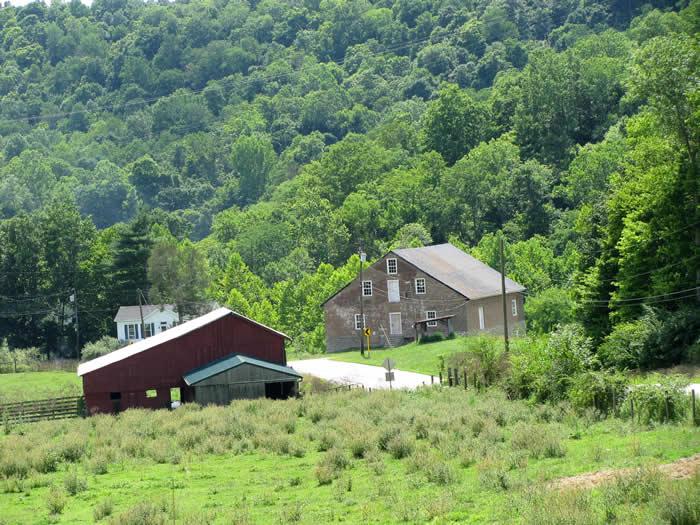
It was no longer in operation in 1993, and was then used as a barn. No equipment remained. The structure was still intact but all the windows were gone, the doors were mostly gone, the interior was damaged due to weather, insects and animals. The bricks were falling apart around the windows as well as significant damage was incurred to the large hand-cut block stone foundation. The wheel pit was constructed with creek/field stone and has over the last 23 years, deteriorated significantly. The mill has since been significantly repaired as of 2014.